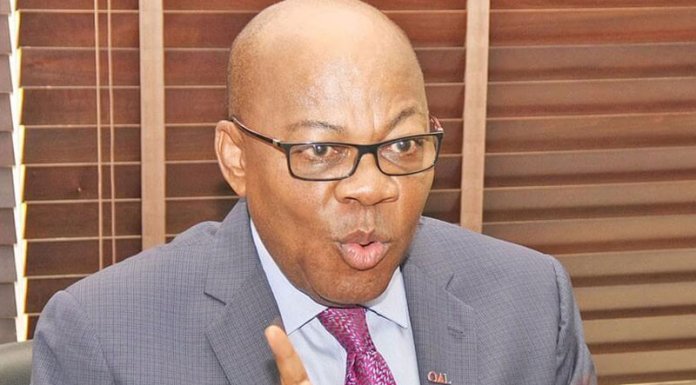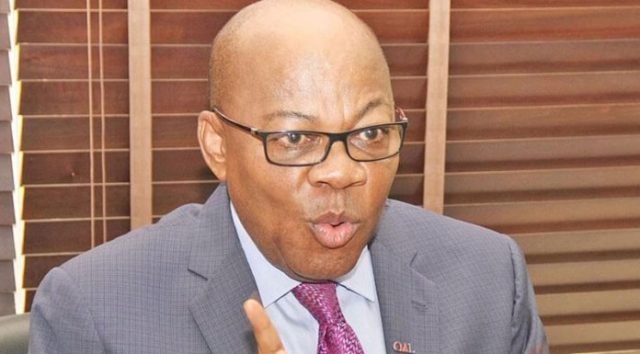 Senior Advocates of Nigeria (SANs) Wednesday advised a civil society organisation, Socio-Economic Rights and Accountability Project (SERAP), to challenge in court, the refusal of the Code of Conduct Bureau (CCB) to disclose the details of President Muhammadu Buhari’s assets.
Senior Advocates of Nigeria (SANs) Wednesday advised a civil society organisation, Socio-Economic Rights and Accountability Project (SERAP), to challenge in court, the refusal of the Code of Conduct Bureau (CCB) to disclose the details of President Muhammadu Buhari’s assets.
Sequel to the Freedom of Information (FoI) Act, SERAP had sought from the CCB the disclosure of assets declarations submitted by successive president and governors from 1999 till date.
But in a letter by Musa Usman, on behalf of CCB chairman, the bureau said the request “falls short of the requirement of the law,” adding that the information requested cannot be provided because of “invasion of privacy.”
However, a SAN and former President of the Nigerian Bar Association (NBA), Mr. Olisa Agbakoba, described the refusal of the CCB to disclose the details of Buhari’s assets as double standard.
Agbakoba said the action of the CCB amounted to double standard considering what happened to the former Chief Justice of Nigeria (CJN), Justice Walter Onnoghen.
Onnoghen was recently convicted by the Code of Conduct Tribunal (CCT) on an alleged six-count charge of failure to declare all his assets as required by the law for public office holders.
The charges were preferred against him by the federal government following a petition filed at the CCB by one Mr. Dennis Aghanya, a director of the Anti-corruption and Research Database Initiative.
Aghanya did not state how he got to know that the former CJN did not update his asset declaration forms since he assumed office.
“It’s double standards given what happened to Justice Onnoghen,” Agbakoba said.
On the next step SERAP should take, the former NBA chair advised SERAP to challenge the refusal in court.
Another senior lawyer, Chief Emeka Ngige (SAN), urged SERAP to go to court to challenge CCB, adding that it would be interesting to see how the court would decide the issue.
Ngige said as a democratic nation, issues such as these should be resolved by the courts, stressing that not only would it be a test case, it would also be an opportunity to find out if the forms lodged with agencies like CCB can be accessed by non-governmental and civil society organisations.
“Let them go to court and challenge CCB. We are in a democracy. It would be a test case. It is an opportunity to determine whether the forms lodged with CCB can be accessed by NGOs. The case can even go beyond the High Court up to as far as the Supreme Court,” he said.
Also reacting, another SAN, Mr. Ahmed Raji, advised SERAP to go to court, which according to him, is saddled with the responsibility of interpreting the law.
While the senior lawyer agreed that the Freedom of Information Act allows members of the public to access information on public officers, he added that there are some exceptions under the Act, which only the court can best determine.
“SERAP is advised to contest the refusal in court. While it is true the Freedom of Information Act is there, there is the need to ascertain whether the class of documents falls into one of the few exceptions under the Act. Let us be guided by the courts,” he said.
Another SAN, Prof. Akinseye George, however, said there was no constitutional or statutory obligation on the bureau to publish the assets declaration forms of the president, vice-president and others.
“But under the Freedom of Information Act, the bureau is obliged to release the information,” he said, adding: “Also, in line with the anti-graft policy of the administration, the asset declaration forms ought to be made public.”
According to him, both the president and the vice-president made their declarations public at the beginning of the first term.
“It is even more important that after they have spent four years, they should make their assets public. That’s the practice in other serious democracies,” he added.
Human rights lawyer, Mr. Femi Falana (SAN), condemned the CCB for refusing to grant the FoI request by SERAP because assets declaration form is private information.
He described the grounds as “illogical,” saying that by not disclosing the assets of the president, the federal government has failed to show commitment to the fight against corruption by encouraging secrecy with respect to asset declaration by public officers.
He said: “With respect, it is illogical to claim that the asset declaration forms submitted by the erstwhile public officers are private documents. Accordingly, the rejection of the request by SERAP is a contravention of section 1 of the Freedom of Information Act, 2011 and Article 9 of the African Charter on Human and Peoples Rights.
“It is hoped that the CCB will review its position and allow citizens to access the information in the declaration forms submitted to it by all public officers in view of the new policy of the Buhari administration to enforce effective asset declaration by public office holders.”
Also, the former Chairman of the National Human Rights Commission (NHRC), Prof. Chidi Odinkalu, said the CCB was deliberately obstructing the implementation of the FoI Act and transparent governance which Buhari committed to before he became president.
Odinkalu, who was one of the forces behind the agitation and passage of the FoI Act in the country, noted that the constitution made release of asset information contingent on the adoption of legislative instrument to govern such release.
He said: “In negotiating the FoI Bill through parliament between 2008 and 2011, the need to ensure and govern disclosure of asset information under the control of the CCB was given and taken as an explicit rationale for the bill that later became the FoI Act.
“Now, the CCB chooses to dance to the tune of a disclosed masquerade. On December 9, 2015, the CCB disclosed that it had sought and received legal advice from then Attorney General of the Federation and Minister of Justice, Mr. Abubakar Malami, instructing it not to disclose the asset forms of the president and Vice President Yemi Osinbajo. What I can’t understand is how the CCB chooses to elevate the opinion of a self-interested lawyer over and above the explicit provisions of our laws, including our constitution.”
Source: This Day NG







